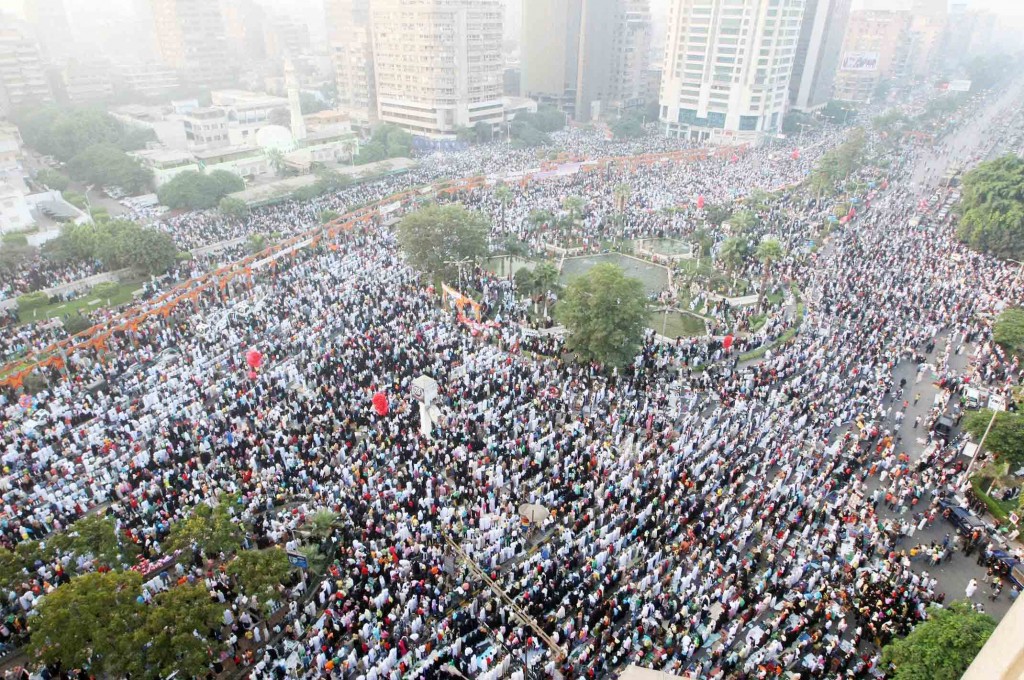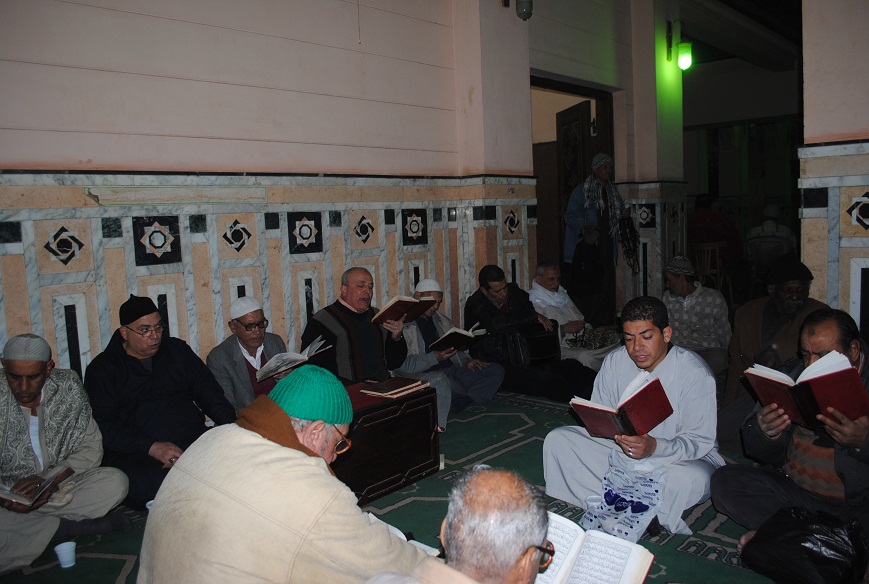 When I was a little girl, I used to cry every time the end of Ramadan was announced. All the soaps, the food, the Iftars out and family gatherings which fill the Ramadan days of a little girl with such happiness are never so abundantly available during any other month of the year. To save the day, however, the end of the long month of fasting would be celebrated with an official feast.
When I was a little girl, I used to cry every time the end of Ramadan was announced. All the soaps, the food, the Iftars out and family gatherings which fill the Ramadan days of a little girl with such happiness are never so abundantly available during any other month of the year. To save the day, however, the end of the long month of fasting would be celebrated with an official feast.
As Ramadan slowly yet inevitably comes to an end, Egyptians have a lot of things to check on their to-do list. For starters, they must buy this year’s share of kahk. The white, sugary, aromatic Eid cookies might seem like a simple business, but they are anything but. It must be decided whether you want them squishy or crunchy, with a filling or without, and homemade or from a pastry shop.
Once that is established and your important kahk has been bought and tried, you move on to the clothes department. Prophet Muhammad used to celebrate Eid by buying a new piece of clothing. Thus, it is a Sunnah, something that is done in imitation of the Prophet and for which you get extra points on Judgment Day, to buy a new item of clothes and wear it on the first day of Eid.
Though the act is simple in nature, it has evolved in time to become more sophisticated, with parents preferring to buy their kids a full new outfit in celebration of Eid, dubbed “Eid clothes.” Yet, you can argue that the changes in Egypt’s culture have slightly thwarted that tradition. The majority of Egyptians are divided into two categories: those that can afford to shop year-round, and so do not feel the need to buy new clothes specifically for Eid, and those who cannot afford to shop at all, and therefore will have nothing new to wear during Eid.
On the night of 29 Ramadan, ideally with the Eid clothes and kahk bought and ready, Muslims eagerly await the result of the Rou’ya, where the official decision of whether or not the next day is Eid is taken by looking for the crescent of the new lunar moon. If the crescent is spotted, then Eid is announced in the given Islamic country. In celebration, the classic song ‘Ya Leilet El-Eid,’ ‘Oh, eve of Eid,’ by music icon Om-Qalthoum is broadcast on television. If the new moon is not spotted, Ramadan continues for another day and the celebration of Eid is postponed.
On the last day of Ramadan, the evening prayers, Taraweeh, are no longer practiced. Therefore, Egyptians suddenly have all the time in the world to remember that Eid is starting the next day and so they flock to go out and go shopping. Traditionally the traffic is horrific on the evening before the feast.
The three-day Eid starts with the special Eid prayer, conducted right after dawn on the first day of Eid and involving chants reminiscent of those recited upon the Muslims’ entrance into Mecca after defeating the infidels.
Eid breakfast is savage; it is the first breakfast Muslims have after a month of fasting and they tend to overindulge in their favourite food, be it eggs, tameyya, cheese or anything else. However, whatever your fancy is, it is a must that kahk is on the menu.
For dinner it is a custom to eat fish on the first day of Eid. Fish and seafood are taken off the Ramadan menu because they are believed to make you thirsty. Consequently, Egyptians celebrate the end of Ramadan by welcoming fish back to their tables.
The nights involve family gatherings and visits, perhaps exchanging kahk and giving kids the opportunity to show off their new clothes.
When it comes to entertainment, some enjoy celebrating Eid by going to the movies; they are always way too crowded to be fun in Eid. Others just prefer to stay at home and watch the new movies released on TV in celebration of Eid. There is at least one new movie shown every night during Eid. The majority will be pinned to their couches, following the finales of the epic number of soaps which have been running all Ramadan long.
The second day of Eid slowly gets less exciting then the first, with the third day becoming more and more boring. As the excitement fades I will slowly sink into a slightly depressed mood, mourning the end of the holy month.



